![]()
Edited by Dr. Raz Zimmt
Originally published by the Meir Amit Intelligence and Terrorism Information Center, Spotlight on Iran issue, September 17, 2013.
A speech delivered by Iran’s President Hassan Rowhani at the 20th national convention of Revolutionary Guards commanders, held in Tehran on September 16, has rekindled the public debate on the organization’s involvement in politics. Rowhani had praise for the contribution of the Revolutionary Guards to defending the country, calling on them to continue their involvement in economic projects to help the government in dealing with the sanctions. He stressed, however, that they must refrain from political involvement.
In the beginning of his speech, Rowhani highly commended the contribution of the Revolutionary Guards to defending Iran against its enemies since the Islamic revolution. He said that the Revolutionary Guards are unlike the armed forces of other countries in the world by virtue of the “spiritual and social capital” that they possess. It is a resource that evokes fear in Iran’s enemies and has earned the Revolutionary Guards the love and trust of Iran’s citizens.
Rowhani emphasized a statement once made by Ruhollah Khomeini, the founder of the Islamic revolution, who declared that the Revolutionary Guards must avoid becoming involved in political struggles for power. The Revolutionary Guards are above political factions, the president said, and they need to distance themselves from political games. They have to belong to all citizens, because if there ever comes a day when national unity is needed — perish the thought — they are the ones who will have to lead the citizens in defense of the homeland under the banner of Islam.
In contrast, the president of Iran made a positive mention of the Revolutionary Guards’ involvement in the economy, calling on them to continue using their strength as well as human and economic capabilities to assist the government. He said that he does not accept the “rumors” about the economic involvement of the Revolutionary Guards, and rejected the claim of them being economic competitors for the public and the private sector. Rowhani stressed that the Revolutionary Guards’ participation in large-scale national economic projects that cannot be carried out by the private sector is vital, and called on the organization to help the government in dealing with the sanctions and fighting the smuggling of goods into the country (asriran.com).
Reactions in the Iranian media to the president’s remarks
The president’s remarks were widely covered by the Iranian media. While media outlets affiliated with the conservative right underscored the president’s praise for the Revolutionary Guards and his positive mention of their economic involvement, some reformist-affiliated media put the emphasis on his call to have the organization removed from politics. Facebook pages identified with Rowhani’s supporters also stressed his comments against the involvement of the Revolutionary Guards in Iran’s political system.
In an editorial commenting on the president’s speech, the conservative daily Resalat said that his remarks once again emphasize the indispensable role played by the Revolutionary Guards in building up Iran’s strength. Collaboration between the government and the Revolutionary Guards is vital for dealing with the economic threats and the sanctions. Speaking about the removal of several Revolutionary Guards-affiliated top officials from a number of government ministries, the article said that recently-made appointments in some ministries, such as the Ministry of Petroleum, indicate that there are ministers who are unwilling to cooperate with the Revolutionary Guards. Resalat argued that the president’s speech reflects a recognition of the need to strengthen the cooperation between the government and the Revolutionary Guards, and expressed hope that government ministers will act in accordance with Rowhani’s remarks (resalat-news.com).
On the other hand, Ali Motahari, a Majles member who formerly voiced strong criticism of the Revolutionary Guards’ involvement in politics and the economy, said he was disappointed with the president’s remarks, and argued that he could have been expected to make his point clearer. In a comment on Rowhani’s speech posted on the Fararu website, Motahari wrote that the president’s speech was intended as a “respectable warning” to the Revolutionary Guards about their involvement in the economy. It is unlikely, Motahari wrote, that the president is unaware of the negative impact of the organization’s economic involvement (fararu.com).
Reactions on social networks to the president’s remarks
Rowhani’s speech at the Revolutionary Guards convention also drew considerable interest from social network users and news website readers. The speech was met with mixed reactions from the online community. While some Iranians expressed their support for the president’s statement, calling it “intelligent and prudent”, many others voiced their disappointment and reservations regarding his stated support for the Revolutionary Guards’ involvement in the economy. Some internet users who expressed their support for the president said that his remarks reflect a rational approach. One of them referred to Rowhani as a “great strategist” who realizes that the economic situation in Iran is extremely grave, and that the abrupt termination of the Revolutionary Guards’ economic involvement could deal the economy yet another blow. The same internet user also speculated that the president has no interest in weakening the Revolutionary Guards just as the nuclear talks with the West are about to begin.
In some cases Rowhani’s remarks provoked arguments between internet users. For instance, reformist political activist Sa’id Shariati triggered a heated debate on his Facebook page after posting a sympathetic comment on the president’s speech. Shariati said that the speech was “smart, intelligent, and strategic”, and argued that two groups are unhappy with it: those who hide behind the Revolutionary Guards and would like to see the government weakened, and those who for some reason want the Revolutionary Guards to “go to hell”. The post received many supporting comments but was also strongly criticized by some internet users who had reservations about the president’s remarks and the support he got from Shariati.
The internet users’ comments make it clear that, as far as the Iranian public is concerned, there is a distinction between support for the Revolutionary Guards as a military organization in charge of defending the country and disapproval of its involvement in politics and economy. While some internet users praised the Revolutionary Guards and their performance in defending the country, many others had reservations about the organization’s involvement in non-military activity that may jeopardize its core mission. A number of internet users expressed their concerns about the exposure of Revolutionary Guards officers to corruption as a result of their involvement in directing economic projects. If the Revolutionary Guards are going to be the Revolutionary Guards of all the citizens, they must refrain from economic activity, said a reader on the Alef website.
In recent days the Iranian public’s appreciation for the Revolutionary Guards as a military force could be seen in the numerous supportive comments received by Qasem Soleimani, the commander of the Revolutionary Guards’ Qods Force, following the death of his mother. Many social media users, including those identified as supporters of the reformist faction, offered their condolences to Soleimani and praised him for his significant contribution to defending the country. This week Iranian blogger Mohammad Moeeni discussed the considerable number of reactions to the death of Soleimani’s mother, saying they are indicative of his immense popularity with the Iranian public.
Playing both sides of the fence: the implications of the president’s speech
The president’s statement at the Revolutionary Guards convention comes as the organization’s economic involvement faces growing criticism, particularly since Rowhani’s election win. In the wake of the criticism, top officials in the Iranian armed forces as well as media affiliated with the conservative right felt moved to comment on those claims and defend the Revolutionary Guards’ involvement in the economy.[1]
Rowhani’s speech reflects his reservations about the involvement of the Revolutionary Guards in the political system, coupled with a recognition of the organization’s strength and a desire to avoid an open confrontation with it, which may also lead to a confrontation with the Supreme Leader. At this point the president prefers playing both sides of the fence and focusing his efforts on the economy and on trust-building initiatives in Iran’s foreign policy, avoiding unnecessary conflicts with strong centers of power in the regime.
This cautious, level-headed approach can also be seen in Rowhani’s public statements on the crisis in Syria. While the president voiced his reservations about the use of chemical weapons in Syria (without assigning blame to the Syrian regime), he fell into line with Iran’s official stance, expressing support for Syria and categorical opposition to a U.S. military offensive against the Assad regime.
The president’s call on the Revolutionary Guards to remove themselves from political power struggles is also a manifestation of his commitment to his voters — particularly supporters of the reformist faction who backed him in the last election — to work for relaxing the security atmosphere that currently prevails in Iranian society.
At the same time, Rowhani’s call on the Revolutionary Guards to help the government in dealing with the effects of the economic sanctions reflects a recognition of the organization’s considerable and unique abilities that allow it to take charge of large-scale economic projects, especially given the private sector’s weakness.
Note:
[1] For more information, see: “Spotlight on Iran: The Revolutionary Guards’ involvement in the economy comes under increasing criticism following Rowhani’s victory in the presidential election”, August 8, 2013.



 RSS
RSS


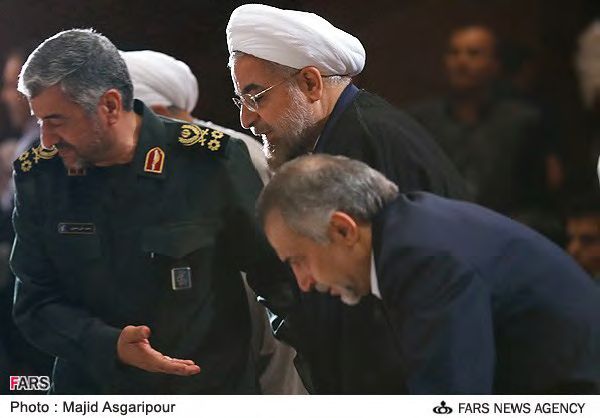
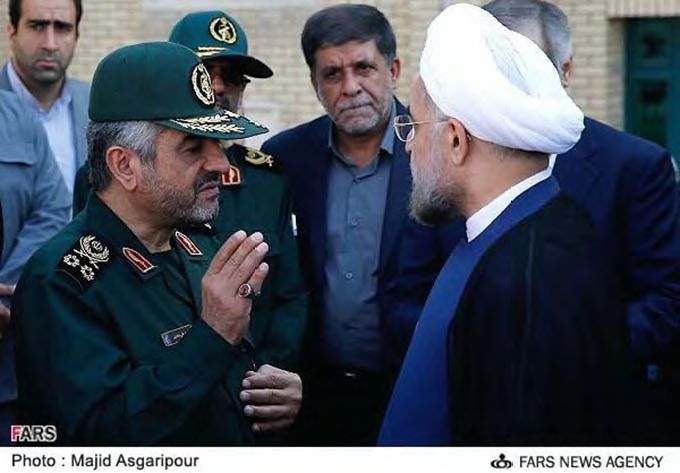
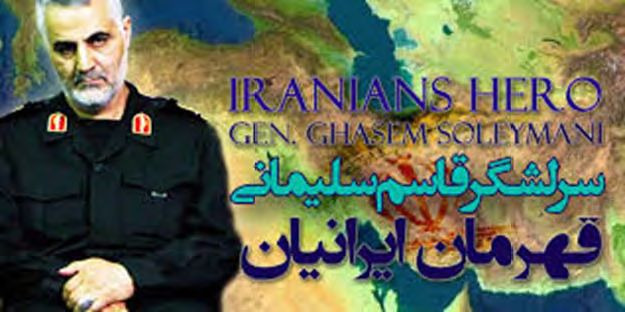
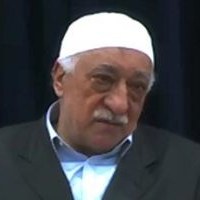

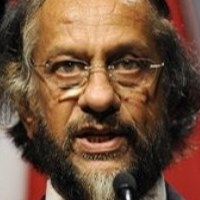

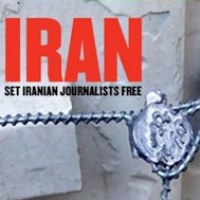




Latest Comments
Hello Mike, Thank you for your positive feedback to the article. I felt there wasn’t too much critical analysis of ...
Thanks for this considered and well constructed article. A follow up article on the manner in which the editorial contro...
THE CLUELESSNESS OF CLAIMING THAT OBAMA'S MIDDLE EAST POLICIES WERE A FAILURE CANNOT BE FURTHER FROM THE TRUTH, WHAT THE...
As long as Obama is the president of the usa do not trust the us government......
Thank you for an good read....